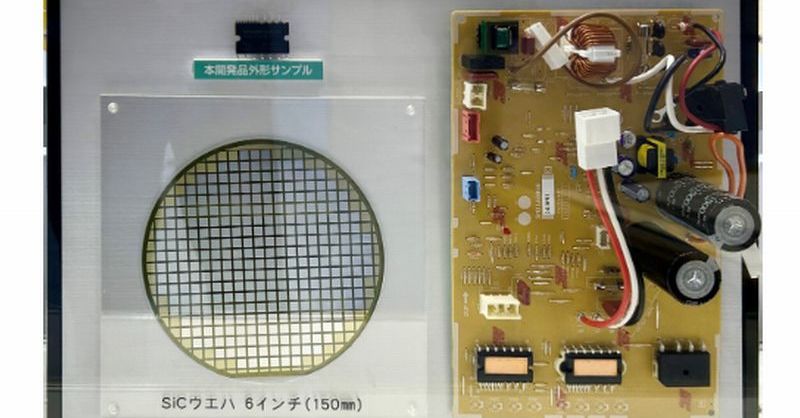Reduced Energy Consumption: The Rise of SiC-Based Intelligent Power Modules (IPMs)
The global push for energy efficiency is driving innovation across various sectors, and power electronics are no exception. A significant leap forward has been achieved with the emergence of Silicon Carbide (SiC)-based Intelligent Power Modules (IPMs). These innovative devices promise significantly reduced energy consumption, paving the way for a greener and more sustainable future. This article delves into the advancements in SiC-based IPM technology and its impact on various industries.
What are SiC-Based IPMs?
Intelligent Power Modules (IPMs) integrate power semiconductors, gate drivers, and protection circuits into a single compact package. Traditionally, these modules have relied on silicon-based IGBTs (Insulated Gate Bipolar Transistors). However, SiC-based IPMs represent a paradigm shift, utilizing Silicon Carbide MOSFETs (Metal-Oxide-Semiconductor Field-Effect Transistors) instead. This seemingly small change unlocks significant performance advantages:
- Lower Switching Losses: SiC MOSFETs boast significantly faster switching speeds compared to silicon IGBTs, leading to drastically reduced switching losses. This translates directly into less wasted energy.
- Higher Efficiency: The combination of lower switching losses and lower conduction losses results in overall higher efficiency, particularly at higher frequencies.
- Smaller Size and Weight: SiC devices offer a higher power density, allowing for smaller and lighter IPMs, ideal for space-constrained applications.
- Improved Thermal Management: Lower switching losses contribute to reduced heat generation, simplifying thermal management and potentially extending the lifespan of the system.
- Enhanced Reliability: SiC MOSFETs are known for their superior robustness and reliability, leading to improved system uptime.
How SiC-Based IPMs Reduce Energy Consumption
The energy savings achieved through SiC-based IPMs are multifaceted. By minimizing switching and conduction losses, these modules significantly improve the efficiency of various power conversion systems. This translates to:
- Lower Electricity Bills: For industrial applications and even in consumer electronics, reduced energy consumption directly leads to lower operating costs.
- Reduced Carbon Footprint: Lower energy consumption implies reduced greenhouse gas emissions, contributing to environmental sustainability.
- Increased System Efficiency: Across various sectors, from electric vehicles to renewable energy systems, improved efficiency leads to better overall system performance.
Applications of SiC-Based IPMs
The versatility of SiC-based IPMs makes them suitable for a wide range of applications, including:
- Electric Vehicles (EVs) and Hybrid Electric Vehicles (HEVs): Improved efficiency directly translates to increased driving range and reduced charging time.
- Renewable Energy Systems: Higher efficiency in solar inverters and wind turbine converters optimizes energy harvesting and grid integration.
- Industrial Motor Drives: SiC-based IPMs enable more efficient and precise control of industrial motors, reducing energy waste.
- Data Centers: The growing demand for data processing necessitates energy-efficient solutions, making SiC-based IPMs a critical component.
- High-Voltage DC Transmission: These modules are vital in enhancing the efficiency of power transmission over long distances.
Future Trends and Challenges
While SiC-based IPMs offer significant advantages, challenges remain:
- Cost: Currently, SiC devices are more expensive than silicon-based alternatives. However, ongoing research and economies of scale are driving down costs.
- Availability: The supply chain for SiC materials and devices is still developing, leading to potential bottlenecks.
Conclusion: A Greener Future Powered by SiC
SiC-based IPMs represent a major technological advancement, offering a pathway towards significantly reduced energy consumption across multiple sectors. As technology matures and costs decline, we can expect to see wider adoption of these innovative modules, paving the way for a more sustainable and energy-efficient future. Stay tuned for further developments in this exciting field!
Keywords: SiC IPM, Silicon Carbide, Intelligent Power Module, Energy Efficiency, Power Electronics, Electric Vehicles, Renewable Energy, Energy Savings, MOSFET, IGBT, Sustainable Technology, Green Technology, Power Conversion, High-Voltage DC Transmission, Industrial Motor Drives, Data Centers.
